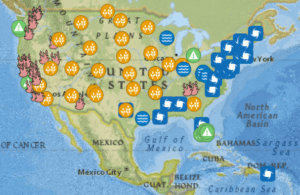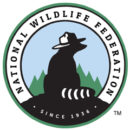We have much more to do and your continued support is needed now more than ever.
Climate Change, Natural Disasters, & Northern Rockies Wildlife: A Story Map

Climate change-fueled natural disasters are challenging the recovery of at-risk species and making some populations more vulnerable to decline. In the Northern Rockies region, North Dakota’s 2017 summer drought and Montana’s Lodgepole Complex fire are recent examples of natural disasters that have plagued communities and wildlife. The Lodgepole Complex Fire (the size of New York City) scorched part of the world’s only sagebrush sea – home to the endangered and regionally-renowned greater sage-grouse. Meanwhile, drought has negatively impacted pheasant and duck habitat, delivering a major blow to North Dakota’s outdoor recreation economy and sportsman traditions.
To communicate these and other risks, National Wildlife Federation has released a new story map, Unnatural Disasters: Climate Change and the Mounting Threats to People and Wildlife, which shows examples of natural disasters that have been worsened by climate change, including hurricanes, harmful algal outbreaks, wildfires, floods, and droughts. Each event on the map includes an estimate of the economic cost, in addition to an illustration of a species that has been impacted by the natural disaster. This map is not a comprehensive record of all natural disasters, but rather a visual way to highlight recent examples of the damage climate-fueled events have on people and wildlife.
VIEW MAP
Policy Recommendations
Climate change is one of the biggest threats to human communities and the long-term survival of America’s wildlife, in part due to worsening natural disasters. Policymakers should adopt practical solutions that will mitigate the impacts of climate change by quickly reducing greenhouse gas emissions and ensuring we are able to adapt and build resilience to those impacts we cannot avoid.
For a more detailed look at National Wildlife Federation’s policy recommendations, please visit: https://www.nwf.org/climatepolicy
Take Action
Join thousands of wildlife champions in sending a message to the EPA that wildlife and communities across the country need real, climate action. The original Clean Power Plan, which would have reduced the amount of climate-disrupting carbon pollution, must be enacted in favor of the current administration’s toothless alternative, an essential “Pro-Coal Plan.”
TAKE ACTION





















